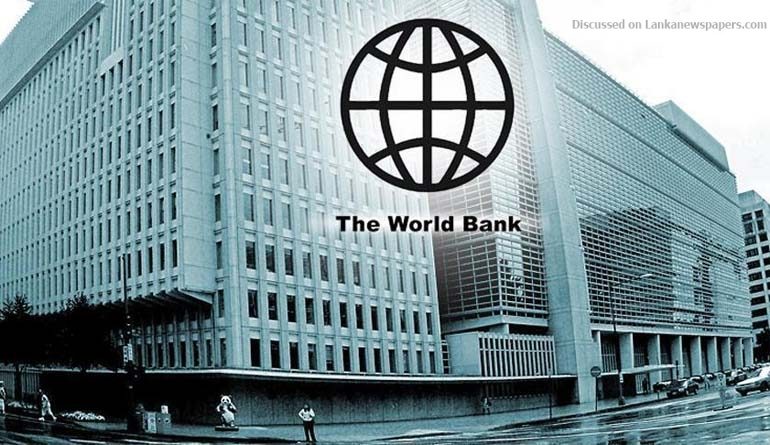Sri Lanka economy to rebound, delaying reforms pose risks: World Bank
The World Bank says Sri Lanka’s economy will rebound in 2018 with annual growth averaging 4.5 percent in the medium term, driven by private consumption and investment but warned against delaying reforms.
Sri Lanka’s economy grew 3.1 percent in 2017, a 16-year low, on adverse weather and political uncertainty.
“A further slowdown in reform implementation, in a challenging political environment, remains the key risk, the World Bank said in a report, ‘South Asia Economic Focus Spring 2018: Jobless Growth?’
“The impending election cycle elevates this risk.
“The economy will rebound in 2018 and the outlook remains favourable, provided the government is committed to the reform agenda of improving competitiveness, governance and public financial management.
“Together with the IMF programme, these reforms will add to confidence and support fiscal consolidation efforts,” it said.
Inflation is expected to stabilize at mid-single digit levels this year.
However, the upward trend in oil prices may exert some upward pressure. Sri Lanka’s rupee collapsed in 2015 and 2016 after the central bank printed money, from 131 to 150 to the US dollar, but oil prices also fell at the time.
With oil prices rebounding the effect of the currency collapse will now pass on to the economy when prices are adjusted, analysts say.
The external sector will continue to benefit from tourism and GSP+ preferential access to the European Union, despite slowing remittances growth, the World Bank said.
“Foreign reserves are expected to improve, with emphasis on purchasing foreign exchange, maintaining a more market-determined exchange rate, and increased FDI,” the report said.
The overall fiscal deficit is projected to fall in the medium term, supported by the on-going implementation of revenue measures, but there were risks.
Delays in implementing tax reforms and improving tax administration will further strain fiscal and debt management.
“Sri Lanka faces several challenges that increasingly put its future economic growth and stability at risk, which must be addressed through macro and structural reforms”, the World Bank warned.
Broadening and simplifying the tax base and aligning spending with priorities will help the government stay on course towards fiscal consolidation, it said.
Sri Lanka should also shift towards a private investment-tradable sector-led growth model by improving trade, investment, innovation and the business environment.
Implementing the Right to Information Act will improve governance and citizen engagement. State-owned enterprises need to see improving performance and service delivery.
Mitigating the impact of reforms on the poor and vulnerable with well-targeted spending was critical for the success of reforms, the report said.
But slow growth in key countries that generate foreign exchange inflows to Sri Lanka in terms of exports, tourism, remittances and FDI, could put the economy at risk.
Steeper than expected global financial conditions would increase the cost of debt and make rolling over the maturing Eurobonds from 2019 more difficult.
“However, the enactment of the Liability Management Act will help mitigate this refinancing risk,” the bank said.
Faster than expected rises in commodity prices would put pressure on the balance of payments and make domestic fuel and electricity price reforms more difficult.
Analysts however say the rising prices of one import will have no effect on the balance of payments, unless imported oil is subsidized with bank credit which in turn will be re-financed with central bank credit (printed money).
In 2015 and 2016 the Sri Lanka slammed into a balance of payments crisis, despite collapsing oil prices, due to money printing. When oil prices are raised, domestic oil users have to forego another purchase, keeping the external sector in balance.
Sri Lanka must also reduce vulnerability and risks in the economy by enhancing disaster preparedness, the World Bank said. (COLOMBO, 16 April, 2018)

